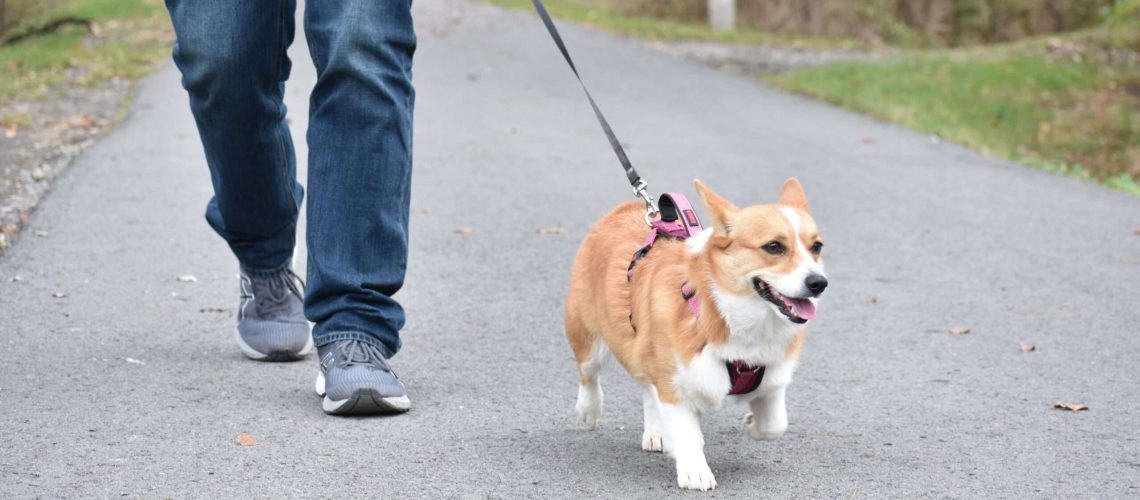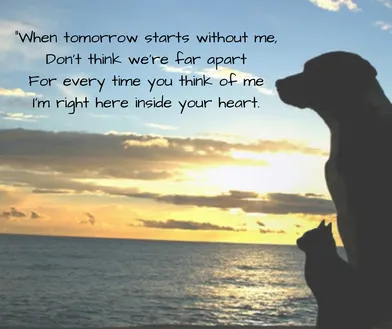Key Takeaways:
- Dogs are capable of experiencing grief and can mourn the loss of a loved one.
- Signs of grief in dogs include changes in appetite, sleep patterns, and behavior.
- Providing comfort and routine can help dogs cope with grief.
- Allowing dogs to say goodbye to their deceased companion can aid in the grieving process.
- Seeking professional help or support from a veterinarian or animal behaviorist may be beneficial for grieving dogs.
Introduction:
Have you ever wondered what goes on in a dog's mind when they lose someone they love? Dogs are not just our loyal companions, but they also have the ability to experience grief. Understanding how dogs process and cope with loss can provide us with valuable insights into their emotional world.
By delving into this subject, we can deepen our bond with our furry friends and learn how to support them during difficult times. Whether you're a dog owner or simply fascinated by the inner lives of animals, exploring the topic of understanding dogs and how they experience grief is essential for developing a greater understanding of these incredible creatures. So, let's embark on this journey together and uncover the secrets behind a dog's grieving heart.
Understanding Dogs and Their Grief: What Does It Mean?
Dogs Experience Grief Just Like Humans
When a dog loses someone they love, whether it's their human companion or another pet, they can experience grief. Grief is a normal and natural response to loss, and dogs are capable of feeling this emotion just like humans. Dogs form strong emotional bonds with their owners and other animals in their lives, so when they pass away, it can be very difficult for the dog to cope.
Grief Can Manifest in Different Ways for Dogs
While dogs may not express their grief in the same way humans do, they still show signs of mourning when they lose a loved one. Some dogs may become withdrawn or less interested in activities they used to enjoy. They might also exhibit changes in appetite or sleep patterns. Other dogs may display more anxious behaviors such as pacing, whining, or excessive barking.
How Do Dogs Show Their Grief When They Lose a Loved One?
Changes in Behavior
When dogs experience grief, it often leads to changes in their behavior. They may become more clingy and seek more attention from their remaining family members. On the other hand, some dogs may withdraw and spend more time alone. These changes can vary depending on the individual dog's personality and how deeply bonded they were with the one who passed away.
Loss of Interest
A grieving dog may lose interest in activities that used to bring them joy. They might no longer want to play with toys or go for walks. This lack of enthusiasm is a common sign of grief as the dog is adjusting to life without their loved one.
Do Dogs Feel Sadness and Loneliness When Someone They Love Passes Away?
Dogs Can Feel Sadness and Loneliness
Yes, dogs can feel sadness and loneliness when someone they love passes away. Dogs have emotions just like humans, although they may not show them in the same way. They are capable of experiencing a deep sense of loss and missing the presence of their loved one.
The Bond Between Dogs and Humans
Dogs form strong bonds with their human companions, often considering them as part of their pack. When a member of their pack is no longer there, it can leave a void that the dog feels deeply. This can lead to feelings of sadness and loneliness.
The Importance of Recognizing and Supporting a Grieving Dog
Grief Can Impact a Dog's Well-being
Recognizing and supporting a grieving dog is important because grief can have an impact on their overall well-being. Just like humans, dogs need time to process their emotions and adjust to life without their loved one. Ignoring or dismissing their grief can prolong the healing process and potentially lead to other behavioral issues.
Providing Comfort and Stability
Supporting a grieving dog involves providing comfort and stability during this difficult time. Keeping routines consistent can help provide a sense of security for the dog. Offering extra attention, cuddles, and reassurance can also help them feel loved and supported.
Signs That Indicate a Dog May Be Experiencing Grief
Changes in Eating Habits
- Loss of appetite or eating less than usual
- Eating more slowly or hesitantly
- Refusing treats or favorite foods
Changes in Sleeping Patterns
- Sleeping more than usual
- Difficulty falling asleep or staying asleep
- Restlessness during sleep, such as whimpering or moving around more than usual
Helping a Grieving Dog Cope with Loss: What Can We Do?
Provide a Safe Space
Creating a safe space for the grieving dog can help them feel secure. This can be a quiet corner of the house with their bed and favorite toys. It's important to allow them to retreat to this space whenever they need some alone time.
Maintain Routine and Structure
Dogs thrive on routine and structure, so maintaining their regular schedule can provide comfort during the grieving process. Keeping meal times, walks, and playtime consistent can help them feel grounded and secure.
Similarities Between Human and Canine Grief: Are There Any?
Emotional Responses
Both humans and dogs experience emotional responses when grieving. They may feel sadness, loneliness, and even anger. While humans may have a greater range of complex emotions, dogs still go through a similar grieving process.
The Need for Support
Just like humans, dogs benefit from support during their grieving process. Both species require understanding, patience, and love to cope with loss. Providing comfort and reassurance can make a significant difference in helping both humans and dogs heal from grief.
In conclusion, dogs are capable of experiencing grief just like humans. They may show signs of sadness and loss when someone they love passes away or when there is a major change in their environment. It is important for us to understand and support them during these difficult times.
Do dogs realize when another dog dies?
While dogs do show signs of grieving for other dogs, they may not fully understand the concept of death and its deeper meanings. According to Dr. [Name], dogs may not realize that another dog in their life has passed away, but they do recognize the absence of that individual.
Did my dog know I loved him before he died?
Indeed, dogs are aware of the love and affection their owners have for them. Dogs and humans share a unique bond, with dogs utilizing the same oxytocin bonding system that humans typically reserve for their infants.
How long do dogs grieve loss of another dog?
Certain dogs may experience a brief period of mourning and quickly return to their normal behavior within a few days. However, others may require a longer adjustment period of weeks or even months to find a new sense of normalcy. Just like humans, the loss of a companion greatly impacts our dogs' lives and routines.
What happens if you have 2 dogs and one dies?
A recent study has confirmed what many pet owners have believed for a long time - almost 90% of dogs who lost a fellow canine companion in their household exhibited negative behaviors in the months following the loss. These behaviors included reduced playfulness, decreased appetite, increased fearfulness, and a greater need for attention.
Do dogs know when they are being put to sleep?
Do dogs have awareness when they are being euthanized? Certain dogs may have an instinctual understanding that their end of life is near. However, they may not fully comprehend that the process of euthanasia is intended to alleviate their suffering since it is a painless procedure.
Does a dogs spirit stay with you?
Yes, it is possible to still communicate with a pet after they have passed away. Their spirit remains alive and they may desire to maintain contact with their owners for a long time. Although they may not be physically present, it is still possible to see, hear, or sense them, even if only for a brief moment.

















